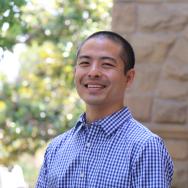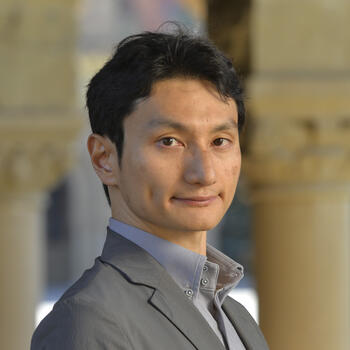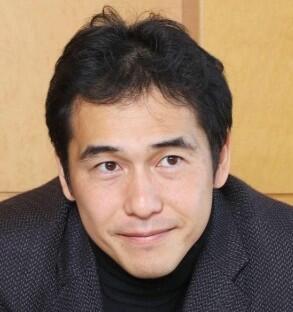The following is Part 7 of a multiple-part series. To read previous installments in this series, please visit the following articles: Part 1, Part 2, Part 3, Part 4, Part 5, and Part 6.
Since December 8, 2020, SPICE has posted six articles that highlight reflections from 49 students on the question, “What does it mean to be an American?” Part 7 features eight additional reflections.
The free educational website “What Does It Mean to Be an American?” offers six lessons on immigration, civic engagement, leadership, civil liberties & equity, justice & reconciliation, and U.S.–Japan relations. The lessons encourage critical thinking through class activities and discussions. On March 24, 2021, SPICE’s Rylan Sekiguchi was honored by the Association for Asian Studies for his authorship of the lessons that are featured on the website, which was developed by the Mineta Legacy Project in partnership with SPICE.
Since the website launched in September 2020, SPICE has invited students to review and share their reflections on the lessons. Below are the reflections of eight students. I am grateful to Dr. Ignacio Ornelas, Teacher, Willow Glen High School, San Jose, California; Mineko Todd, Teacher, Waiakea High School, Hawaii; Aya Shehata, Hilo High School, Hawaii; and Kathryn Tolbert, a former editor and reporter at The Washington Post for their support with this edition. The reflections below do not necessarily reflect those of the SPICE staff.
Kylie Copeland, California
What makes one an American is not based on their ethnicity or the color of their skin, but rather their devotion to life, liberty, freedom, and the pursuit of happiness. These unalienable rights and their importance have been repeated in many pieces of American literature. These rights have shown to not hold as much value when concerning race. As a White-Vietnamese woman, I have endured experiences where I have been treated like I don’t fit an American profile, even though my morals are those that align with the unalienable rights. It is important to understand that one who is American is one who is determined to fight for liberty, and fight for freedom, and fight for those who are affected daily by these important rights.
Janessa Dillion, California
American ideals are among of the most falsely advertised concepts I have had to face growing up. I was taught that there is pride in being an American and what the country stood for. “Liberty and justice for all” is a lie when our own justice system would condone slavery and police brutality. Our founding fathers constructed a country benefiting only the people that they thought mattered. America is not broken; it is how it was intended to be and now it’s up to the youth (the leaders of the future) that recognize this to not “fix” it but to deconstruct what we currently have in place. I am proud to be an American because I get to create a better future and that’s where my patriotism lies.
Evan Ingerick, Pennsylvania
I take being American for granted. I’m a third generation Japanese American. My great-grandmother is a war bride from Japan. I live in rural Pennsylvania. I have heard stories from my grandpa about being bullied about his skin and race. To me, times have changed where kids aren’t as prejudiced. When I think of being American, I think of all the “freedoms” we have. For me, it is freedom of speech, religion, the ability to choose courses for my choice of a career. I can play all sports. I can do anything anyone else can. If I question what being an American is, I wonder if our democracy is eroding because of all race-related riots, immigration problems, voting systems problems in the news today. These things concern me.
Justin Katayama, New York
While the Japanese tend to be bound to their idea of peace, Americans tend to believe that they are the ones who can bring about justice by raising their voice. While the Japanese believe the same thing, they don’t speak out because they prioritize harmony. Because Japan is very conservative, there is not as much conflict. While I am of Japanese ancestry, I was born and raised in America. I was raised to have the mentality that my opinion matters and that I should speak out when I believe I should. Being an American means that my voice isn’t bound by anything and that it will always be heard by someone.
Mailiokawailelenani Mckeague, Hawaii
Living around 2,000 miles away from what I think is the true America, the term “American” has never been more than the title of the country I live in. I say the Pledge of Allegiance every morning and watch the news every night, yet there is rarely any mainstream media on Hawaii, where I live. There is a big debate on whether Hawaii is a part of America since it was illegally overthrown. With my father being Japanese and Hawaiian and my mother being from Brazil, there seems to be a big gap between where I fit into this idea of being an American. Yet to me, that seems exactly what it means to be American. To be American means to live in a diverse community of people who may not feel like they fit in but they call America home nonetheless.
Daniela Muñoz, California
Even though we live in a land of freedom, oftentimes being American means having the necessity to fight for equality and justice. People see America as such a perfect country. In reality, a lot of people have had to fight hard to have the opportunities that they have today. My parents are immigrants who came to the United States for better opportunities. They followed their American dream to accomplish things that they wouldn’t have been able to accomplish in their home country. I have Mexican roots and I sometimes think that I will never truly feel the full experience as an American, but I will contribute to traditions and help better the community. It is the significance of maintaining our traditional culture regardless that is important to me.
Nyla Gaeta Nedrow, California
Since its foundation, the United States has been recognized as a pioneer for change. As Americans, I think it’s our duty to keep pushing for progress in areas such as equity and fairness. Our country is far from perfect but when we stand united towards a common goal, anything is possible. From the American Revolution to our most recent election, the American people have proven again and again that we can be agents for change. Being an American means having a nuanced understanding of our country’s past and present. Just because we are asking for improvement does not mean we love our country any less. If anything, I think it means quite the opposite. We ask for improvement because we want the best for our country and for its people.
Hokulani Thomas, Hawaii
When I think about what it means to be an American, I think about diversity. Our country is made up of all different kinds of people from all over the world. From where I am from, which is Hawaii, being mixed race is completely the norm. You could take a walk around town and meet and see people of all different backgrounds. And while to this day there is still prejudice and hate over some cultures and races, in Hawaii we have love and aloha for one another, and we celebrate and support one another’s cultures. So when I think about what it means to be an American, I think about diversity, and how we are getting more and more accepting of different cultures every year.
















